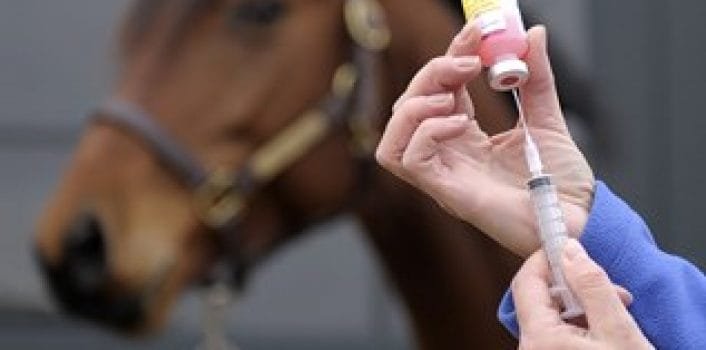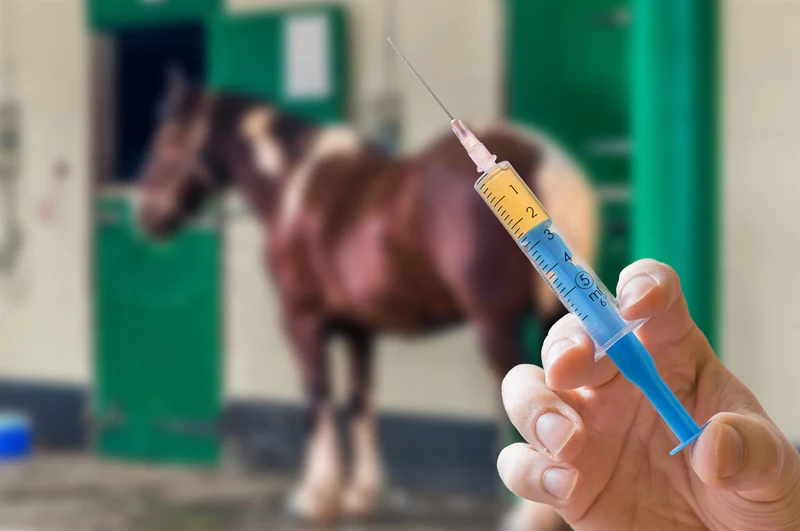Vaccinations are a crucial part of equine healthcare, helping to protect your horse from various infectious diseases.
Just like humans, horses require specific vaccinations to ensure their health and longevity. In this blog, we’ll explore the essential vaccines for horses, when to administer them, and why they’re necessary for your horse’s well-being.
Why Vaccination Matters
Vaccination plays a vital role in preventing the spread of infectious diseases among horses. These diseases can range from mild to severe, and some can even be fatal. By vaccinating your horse, you not only protect your animal but also contribute to the overall health of the equine population. Vaccines work by stimulating the horse’s immune system, helping it recognize and fight off specific pathogens if exposed in the future.
Core vs. Non-Core Vaccines
Vaccines for horses are categorized into two main groups: core and non-core vaccines.
Core Vaccines
Core vaccines are essential for all horses, regardless of their age, lifestyle, or geographic location. These vaccines protect against diseases that pose significant health risks. The core vaccines include:
- Tetanus: Tetanus is caused by bacteria found in soil and manure. It can enter the body through wounds, leading to severe muscle stiffness and spasms. The vaccine is typically given annually.
- Eastern and Western Equine Encephalomyelitis (EEE and WEE): These viral infections are transmitted by mosquitoes and can cause neurological issues, leading to severe illness or death. Vaccination is usually done annually, with some regions recommending a booster every six months during mosquito season.
- West Nile Virus: This disease is also transmitted by mosquitoes and can affect the horse’s nervous system. Vaccination is typically given annually.
- Rabies: Although less common, rabies is a fatal viral disease that can be transmitted through bites from infected animals. The vaccine is usually administered annually.
Non-Core Vaccines
Non-core vaccines are recommended based on specific risk factors such as geographic location, lifestyle, and exposure to certain environments. Some common non-core vaccines include:
- Influenza: This respiratory disease is highly contagious and can spread quickly, especially in show or travel situations. Vaccination is usually given every six months to a year, depending on exposure risk.
- Strangles: Caused by a bacterium, strangles can spread rapidly among horses. The vaccine is often recommended for horses in close contact with others, such as at barns or events.
- Potomac Horse Fever: This disease, caused by a specific bacterium, is associated with water sources like rivers and streams. Vaccination is recommended for horses at risk, usually given annually in the spring.
- Equine Herpesvirus (EHV): This virus can cause respiratory illness, neurological problems, and reproductive issues. Vaccination is often advised for young horses and those that are frequently in contact with other horses.
Vaccination Schedule

A typical vaccination schedule for horses may look something like this:
Foals (0-6 months)
- Initial Vaccination: Foals should receive their first vaccinations around 4 to 6 months of age, which includes core vaccines.
- Boosters: A booster shot is typically given 4 to 6 weeks after the initial vaccine.
Yearlings (6-12 months)
- Continue with core vaccines if not already completed.
- Begin administering non-core vaccines based on risk assessment.
Adult Horses (1 year and older)
- Core Vaccines: Administer annually.
- Non-Core Vaccines: Based on lifestyle, exposure, and veterinarian recommendations. For example, show horses may need more frequent influenza vaccines.
Older Horses
- Consult your veterinarian for a tailored vaccination schedule, as older horses may have different needs.
Importance of Keeping Records
Maintaining accurate vaccination records is essential. These records help you track which vaccines your horse has received and when they are due for their next shots. It also provides important information for competitions or travel, as many events require proof of vaccination.
Consulting Your Veterinarian
Always consult your veterinarian when developing a vaccination schedule for your horse. They can assess your horse’s individual needs based on age, health status, and lifestyle factors. Additionally, your vet can provide guidance on any emerging diseases that may require vaccination in your area.




